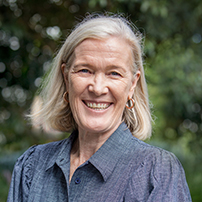It’s been just over 12 months since we were plunged quite dramatically into a strange and uncertain season. Most of us didn’t see it coming. The notion of a worldwide pandemic seemed implausible, especially for those of us living comfortable lifestyles in the West.
How much has changed. How much more we know. But alongside this growing knowledge something else has grown too – a chorus of questions about why this is happening at all. Is someone trying to tell us something? What will happen if, God forbid, there is another global pandemic?
The questions are not new. Fellow travellers have asked them through the ages in the face of major disasters and human tragedies, usually without satisfactory answers.
God And The Pandemic
In his book God and the Pandemic, Tom Wright gave what I think has been the best answer so far to the question ‘why?’ In fact, he changed the ‘why’ into ‘what?’ ‘What can we do?’
Wright reminds us that Christians have always asked this question in response to a crisis – a response modelled to us from the earliest days of the church and continued throughout the worst of times. When Paul wrote to the Galatians “to do good to all people”, the outside world was astounded. Yet the church responded. And the caring behaviour of Christians during the great plagues of the early centuries was a significant factor in the spread of Christianity.
Indeed, ever since, Christians have visited the prisoners, cared for the sick, welcomed the strangers, fed the hungry.
Is all this irrelevant now that we are within sight, at least in developed nations, of an effective vaccine? It’s a question we know is not the case at the international relief and development organisation where I serve. This COVID crisis is far from over, particularly for the most fragile and vulnerable parts of the globe. Pandemic aside, the very real inequality and poverty that existed before will only deepen with other crises.
I don’t believe it has to be this way. What, then, is our role? What does God expect of his people? What are we doing to be at work with God today?
What Are We Doing To Be At Work With God Today?
We know that privilege and responsibility always sit side by side. Yet, as one of my heroines Caroline Cox, who spent a lifetime working to change the world, said, “Nobody can do everything, but everybody can do something.”
Having just celebrated Easter, we know, too, that one of the marks and means of the Christian life is serving as Jesus modelled, culminating in the ultimate act of service when He gave up His life on the cross. Just a day earlier, Jesus and the disciples celebrated the Passover meal, where Jesus got up, took off His outer clothing, and wrapped a towel around His waist. He poured water into a basin and began to wash and dry His disciples’ feet.
Dirty, dusty, smelly feet, He washed. Jesus wanted to leave His disciples with a clear picture of not just who He was, but who He wanted them to be as His followers.
So following Jesus means more than a personal relationship with Him. It inherently involves a public and transforming relationships with the world. If our personal faith has no outward expression, there’s a big hole in it. After all, Jesus never merely called His disciples into a holy huddle; He also sent them. He didn’t just invite them to follow Him; He asked them to join His work, to go into the world and serve people as He did.
How God Is Making A Difference . . . And Calling You To Do The Same
In our global work, we see the difference joining God can make. From hygiene workshops and refugee programs to savings groups and child sponsorships, we see the impact God’s people can have for those in poverty.
And although Australia has been a leader in flattening the curve, many of our neighbours are still shockingly ill-equipped to deal with the COVID virus. Humanitarians predict that the pandemic will push 40 to 60 million more people into extreme poverty, the first increase in global poverty in decades. They worry that for these countries, the worst is yet to come and that some 265 million will face acute food insecurity.
Yet ours is the wealthiest generation ever. We have sophisticated research and medicines at our fingertips. We have the resources to feed the hungry and house refugees. And, by God’s grace, we now have access to vaccines. But while wealthy countries could provide the monetary resources for the entire world to receive it, the political and social commitment for that to happen doesn’t currently exist.
Like it or not, God has delegated to human beings the power to run many aspects of this world. For those who follow Jesus, we know God has called us to “do something”. There is no plan B. God has given us everything we need to end physical and spiritual poverty. This is our privilege as His image bearers across His good Earth, knowing there are several billion human reasons to accept God’s call and challenge. Most of them live in places we’re not likely to go to: a slum in South-East Asia, a refugee camp in Lebanon, a rural village in Bangladesh. They survive conflicts, flee their homes, struggle to feed their families, and long for safe haven. And they battle COVID-19 in countries already devastated by economic poverty.
In other words, the pandemic and emerging vaccine remind us of our call and the gracious reality that God is at work in this broken world. He is asking us to join Him.
This article first appeared in Sight Magazine on Wednesday, 7 April 2021.

